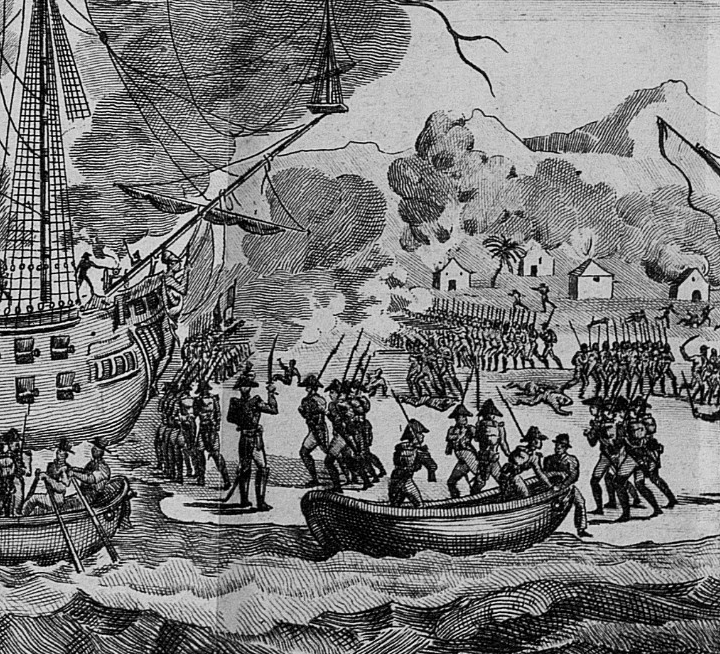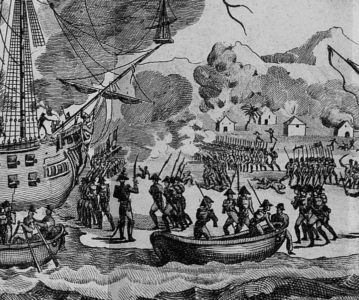Gabriel Radic argues that various attempts in academia to develop theories of revolution as alternatives to Marx’s theory of revolution and historical materialism only serve to disguise the centrality of class contradiction in these events. Reading: Cliff Connolly.

Within the academic milieus of social scientific analysis and research, there is a peculiar tendency that seeks to reduce social phenomena to generic compartments which are invented and imposed on these phenomena. A handful of fitting historical examples are selectively chosen and sewn into a narrative that seeks to prove that the mechanisms of social existence can be scientifically observed, predicted, and calculated as if people were atoms. This attempt to quantify the dynamism of the human condition manifests itself in academic attempts to replace Marxism as a theory of revolution.
Asserting the primacy of any one historical or sociological factor in assessing every revolution or form of resistance while downplaying the importance of other critical elements is an act of ahistorical reductionism that has no place in the interdisciplinary study of revolutionary theory. Revolutions are borne from a multiplicity of factors relevant to the conditions of that society. Economic formations, ideological currents, and the rise and fall of institutional power all coalesce in differing environments that provide an impetus for resistance against hegemonic actors, and, on rare occasions, their overthrow.
To overcome the deficiencies of bourgeois analysis, it is imperative to use historical materialism as a tool for understanding historical development. Historical materialism is the methodology of Marxist historiography and views historical developments and all other phenomena in their totality and interconnectedness. Marxism accomplishes this by observing (not interpreting) how society materially produces and reproduces its own existence, and the ideological consequences rendered therefrom. It is superior to the nitpicking of historical phenomena by the pseudo-intellectual legions of academics who formulate vapid and transient theories that arise to prominence and fail the test of time within a generation.
Before briefly considering academic perspectives that fail to assess revolution in all its complexities, it is important to define our object of concern. These texts concern themselves with the terms ‘resistance’ and ‘revolution,’ concepts that, when taken as identical, are inexact and will lead to vague conclusions, if any. Let us set aside ‘resistance’ and focus on a precise form of revolution: social revolution. These revolutions, vis-à-vis political revolutions, not only affect the mass of society but arise from the masses themselves. The participation of the masses in the successful exoneration of their own existence leads to the most dramatic societal changes, as the grasping of their own destiny often animates the consciousness of disaffected souls the world over. The identification of the most important sociological and historical factors in successful social revolutions will occupy our considerations hereafter.
Of all the readings considered in this essay, with whatever brevity, only one addresses the near-ubiquitous deficiency of social science. Theda Skocpol, the author of States and Social Revolutions, puts forward a criticism of the incomprehensiveness of the social sciences, stating “analytic oversimplification cannot lead us toward valid, complete explanations of revolutions.” She then goes on to commit the same errors by focusing on merely three historical examples (despite having the space of a book with which to overcome this indolence).1 Nevertheless, the author correctly identifies the most important factor behind social revolutions and the underlying antagonism of human society since the inception of society itself: socioeconomic class.
It is necessary to briefly describe what class is and how class warfare operates under its most recent economic incarnation in order to properly evaluate the causality of successful social revolutions.
Class is the most important factor in social revolutions because to put it simply, it embodies all of society. People compose society and all participants of society fit into a class, no matter how the gradations of class are framed. Therefore the economy and all of the civic, religious, academic, etc. institutions arise from the activity of classes, of humankind.
Class is defined by the operations of economic forces; the class typology thereby defers to the essence of the economy in any given historical period: master and slave, lord and serf, employer and employee. Under capitalism, the array of classes of feudal and slave societies of the past are increasingly reduced to two camps, the proletariat and bourgeoisie, whose inherent, irredeemable incompatibility are exacerbated by the monopolization and cartelization of productive forces under the capitalist form. The latter bourgeois elements invariably consume one another until a protracted alliance of monopolies and cartels is globally established to ensure the perpetuation of bourgeois hegemony. Bourgeois precedence over the consolidation of industry is predicated on the material dispossession of the proletariat through the exploitation of their labor in vicious class warfare. At certain historical junctures, a variety of factors align that move the proletariat to exercise its power in an overwhelming display which lays siege to the order under which its existence is realized to no longer be tolerable. These factors are as follows: the widespread dispersion of class consciousness; the weakening or collapse of existing institutions of bourgeois power; and the strategic funneling of working-class power by an organized, revolutionary vanguard.
Theda Skocpol correctly identifies all successive theories of social revolutions as emerging from this Marxist framework of class warfare. These latter theories variously emphasize other properties and conditions of social revolution that appear prominently in selective case studies, such as psychology (aggregate-psychological theories), violence (systems/value consensus), and organized groups (political-conflict theories), all of which operate under an ideological umbrella of sorts.2 These pretending theories amount to a vulgarization of Marxism as they attempt to dissect and/or re-orient the reciprocal totality of the base and superstructure in favor of selective components of this totality. Skocpol also confuses the theory of class struggle through her creation of a false ambiguity between the bourgeoisie and the state, asserting that the latter is not necessarily a tool of the former, but an independent entity. This arbitrary demarcation partially undermines her methodology, as it is selectively exercised, in turn diminishing the scientific validity of her structuralist analysis.
While Skocpol’s works signaled the culmination of the third generation of revolutionary theory, it would be imprudent to ignore other major contributors to this school and highlight their deficiencies.
The most significant contributions of the third generation were Crane Brinton’s rising expectations theory, David Aberle’s relative deprivation theory, and James Davies’ J-curve theory. Brinton’s magnum opus only assesses four revolutions where he develops his observation that economic upturn results in increased expectations that go on not to be met, causing a revolution as a result.3 In a similar conception, Aberle borrows a theory from political science—relative deprivation—and applies it sociologically to a few historical examples. His theory states that social revolutions occur when enough people perceive “a negative discrepancy between expectation and actuality.”4 Davies focuses on a mere three revolutions to explain his J-curve theory that social revolution occurs when rising expectations and needs satisfaction are dashed by a period of abrupt economic decline.5
These theories all use selective events in an effort to realize overlapping causal trends of social revolutions. At the base of all of them is a change in economic conditions and a realization of this by an overwhelming number of people. These theories are all explanations of class consciousness giving rise to class warfare but reconfigured by Western academics in an effort to create some original, new theory. The Marxian analysis takes into consideration everything these academics write about without either ignoring or underplaying the ascendant role of class in social revolutions.
All told, the Marxian analysis of history does not bind itself with arbitrary limitations, and a wealth of disagreements and diversity of thought have arisen under the methodological framework of historical materialism. In its observance of the production and reproduction of our materiality through capitalist economic formations, we can extrapolate empirically and comprehensively the effects of this base on all components of the superstructure, and their subsequent reciprocity. Within this framework, we observe class, class consciousness, and class warfare as the vehicle for social change, namely social revolutions, while taking under consideration the totality of competing forces within capitalist society. The arbitrariness of bourgeois historians and social scientists in their selectively drawing out of features and trends in this totality simply obscures the reality of historical development, while their ideological convictions lead them to underplay the critical importance of class society in an effort to reduce class consciousness within academic environments and popular culture, thereby perpetuating capitalist ideology.





